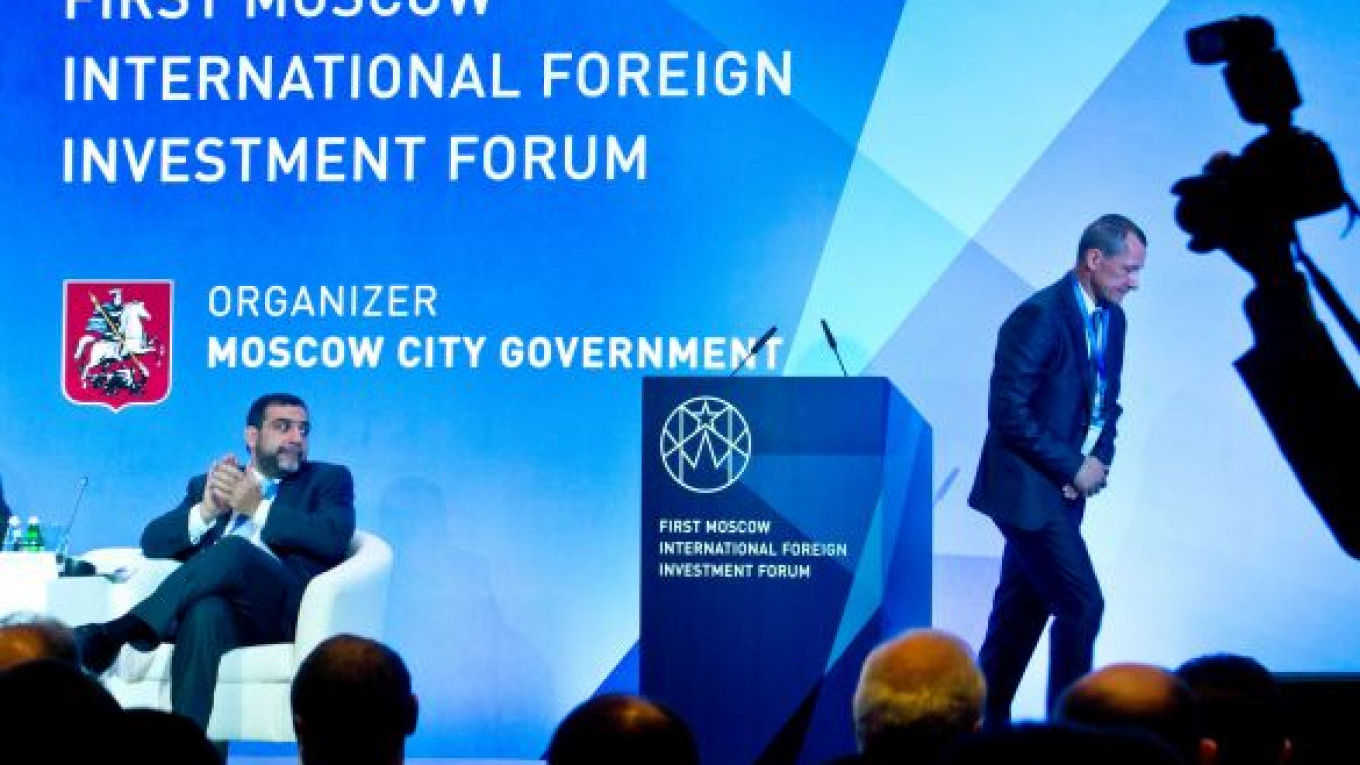Blocked by bureaucracy? Not appreciated by officials? Look for the red button.
Under a new initiative by business ombudsman Boris Titov, people sent packing by government agencies will have someone to help them try again.
Due to be drawn up by the end of December, the Red Button program will literally feature red buttons on state websites that direct the disgruntled to Titov's organization and provide instructions for filing a complaint.
"The main task is to build a system of recourse for businesspeople who have already received a refusal," Titov told The Moscow Times on Wednesday on the sidelines of the first Moscow International Foreign Investment Forum. "Every ministry will have a button on their site through which you will enter our Red Button system."
The move is the latest initiative the from liberal-leaning Titov, who formerly ran sparkling-wine manufacturer Abrau Durso. He was appointed to the business ombudsman's role by President Vladimir Putin during the St. Petersburg Economic Forum in June.
In the four months since the creation of the office, the ombudsman has been approached 233 times, Titov said. In 40 percent of cases, the issue is linked to criminal investigations.
Putin warned Titov last week that he should be careful of "lobbying business interests or protecting those who actually break the law," and Titov had clearly taken this message to heart.
He stressed the role of expert analysis in determining the authenticity of complaints Wednesday.
"In order to be able to help, you have to be sure that you are helping the right person," he said.
Titov was taking part in the first set-piece foreign investment conference sponsored by Moscow city authorities. It is designed to promote the business opportunities available in Russia's capital and the surrounding region.
But several prominent speakers failed to turn up. Economic Development Minister Andrei Belousov, Moscow Mayor Sergei Sobyanin and Sberbank president German Gref were all scheduled to attend but did not put in an appearance.
The keynote speech was given by Deputy Prime Minister Arkady Dvorkovich, who told attendees that the country had already achieved a modest amount of foreign investment.
He compared investment success to the recent Russian national football team's 1-0 wins over Portugal and Azerbaijan: It was good but could be better.
"We would like to win comprehensively," Dvorkovich said. "We would like to win with confidence."
The Moscow investment forum is the second big annual business event in the capital. The Moscow Urban Forum was introduced in December.
"Not everyone knows what is going on in Moscow," said Sergei Cheremin, head of the city's Department for External Economic and International Relations and one of the organizers.
"If you analyze the content of foreign media, then in the first place you find the issue of Pussy Riot," he said, referring to the punk rockers jailed for performing in Moscow's Christ the Savior Cathedral. "We haven't established a sufficiently good relationship with the international business community."
Though Sobyanin failed to turn up, others said the new platform for dialogue between investors and city authorities was a direct result of a new approach fostered by the mayor during his two years in office.
"This conference is a positive sign that the government is trying to find solutions to make business easier," said Lee Timmins, vice president of Hines, a developer with about $1 billion worth of Russian investments. "The city of Moscow is trying."
Related articles:
A Message from The Moscow Times:
Dear readers,
We are facing unprecedented challenges. Russia's Prosecutor General's Office has designated The Moscow Times as an "undesirable" organization, criminalizing our work and putting our staff at risk of prosecution. This follows our earlier unjust labeling as a "foreign agent."
These actions are direct attempts to silence independent journalism in Russia. The authorities claim our work "discredits the decisions of the Russian leadership." We see things differently: we strive to provide accurate, unbiased reporting on Russia.
We, the journalists of The Moscow Times, refuse to be silenced. But to continue our work, we need your help.
Your support, no matter how small, makes a world of difference. If you can, please support us monthly starting from just $2. It's quick to set up, and every contribution makes a significant impact.
By supporting The Moscow Times, you're defending open, independent journalism in the face of repression. Thank you for standing with us.
Remind me later.







